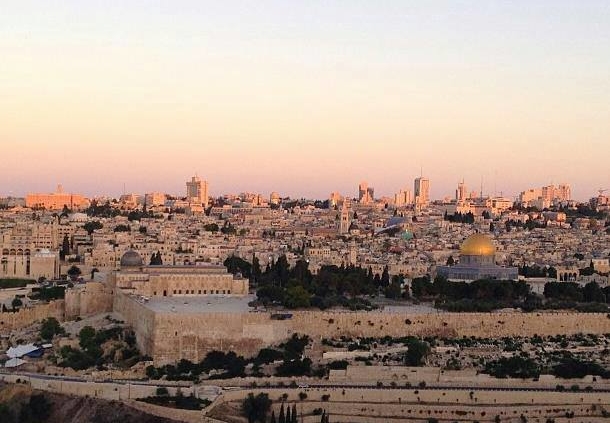A Night with the Opening Verse of Surah Al-Israa
It was in a night similar to this one just over 1,400 years ago, when the Prophet Muhammad (prayers and peace be upon him) fell asleep by the holy sanctuary of the Ka’bah. Gabriel woke him up, and instructed the Prophet to ride an animal by the name of Buraq. Buraq is an animal which is described to look somewhat between a mule and donkey, and every stride of his as far as his eye can see. Buraq, this unique white beast had carried previous Prophets and Messengers, but was now on a journey to deliver the Prophet to his Lord.
The story of Israa & Mi’raj is well known, and can be found in any book of the Prophetic biography. Therefore, I will leave the reader to return to such sources as the complete incident can be found there. However, I would like to share a few reflections on the very first verse of Surahtul Israa. God (Exalted and Mighty) says, “Glory to Him who made His servant travel by night from the sacred place of worship to the furthest place of worship, whose surroundings We have blessed, to show Him some of Our signs: He alone is the All-Hearing, the All-Seeing.” [Quran: 17:1 – The Night Journey]
God begins this verse with glorifying Himself. Glorification in respect of God, is in fact a negation of anything that does not relate to or belittles Him. The glorification of God is very befitting here, especially because two ranks are spoken of in this verse. The first which has been mentioned, and then the second: servitude. God describes His noblest Prophet as a ‘servant’. A respective title is not given, nor is the name Muhammad explicitly mentioned. Rather, the leader of creation is humbled in the presence of the Creator of creation. In fact, the scholars have said in this regard, ‘If there were a greater title for the Prophet; he would have been entitled with it on such a significant night’. This is because the Prophet displayed true service, and embodied it in every action he did. The job of a servant is manifesting what his master has asked him to do without question. Intellectual debate and argument is not a condition to accepting truth. This is why Abu Bakr himself was nicknamed ‘As-Siddiq’ – The Great Confirmer of the Truth, right after this very incident. With sound reasoning, he argued that he believed in a man who claimed revelation from the Heavens. Therefore, he found it rationally possible that the Prophet himself could have gone to the Heavens himself, and receive instruction from His Lord directly.
The two sacred places of worship in this verse are referring to the Ka’bah and the Aqsa Mosque. At the time, the Aqsa Mosque was the furthest worship place from the Ka’bah that was also visited. The Aqsa Mosque stands within the lands of Greater Syria (Sham), and is described to be a blessed land. It is blessed with rivers and fruits, but more importantly through the individuals who stayed there. God says in a divine tradition, “O Sham! You are the chosen land from my lands. And I pull my chosen servants to you”. at-Tabarani in Musnad al-Shamiyyin (1:345))
God ends this verse with two of His attributes: The All-Hearing, The All-Seeing. The scholars have differed whether the Prophet actually saw God or not during the night journey. Through my own personal reflections- and God knows best- God is indicating a physical meeting through these two attributes, and applying that the beloved spoke directly with his Beloved in a manner befitting to that realm.
In conclusion, we may not have such a privilege to take on a night journey to the Heavens, but each one of us has the potential to take on a spiritual journey to our Lord. The Prophet was gifted the greatest of all gifts to us in this night; prayer. The uniqueness of prayer is in its prostration, in which respect the Prophet Muhammad said, “The closest a servant is to his Lord in is a state of prostration.” Prostration or submission was the essence of the Prophet’s night journey. Often times we find ourselves unintentionally questioning God’s authority, delving into theological debates, and in a state of confusion. “Desires multiply as knowledge increases” says Sr. Miriam Joseph in her work ‘The Trivium’. A person’s desires may either reach the boundaries of this world, or the eternity of the next. On the other hand, we notice the response of the companions which was no more than two words, ‘We listen, and we obey’. Refutations and rationality are essential, but in their proper places. Our questioning of God’s commandments should follow our submission first. Islam does not negate sound thinking, but encourages trusting the Lord who created you from nothing. The One who knows us better than we do, and the One who knows the past, present, and future.
I ask God to grant us all a spiritual journey to Him in this world, and a physical meeting with Him in the next. O God, make us content with You, and be content with us. And grant us the station of true servitude for You alone.
MicroMolvi,
Yousaf Seyal
Image taken by Sidra Mushtaq, 7th June, 2013
“Bury yourself in the ground of humility. For whatever is planted but not buried, does not grow completely.” -Ibn At’aa
